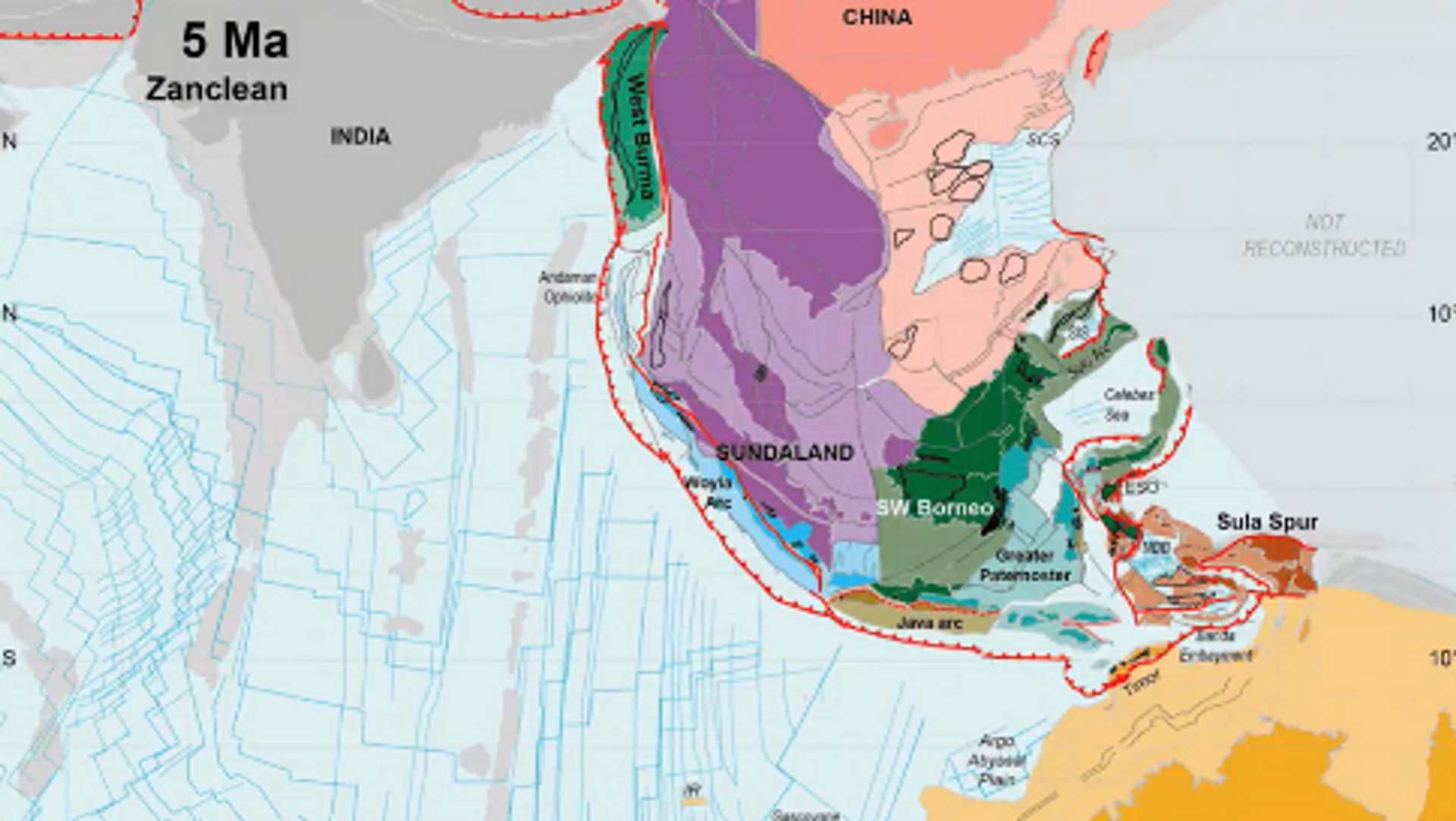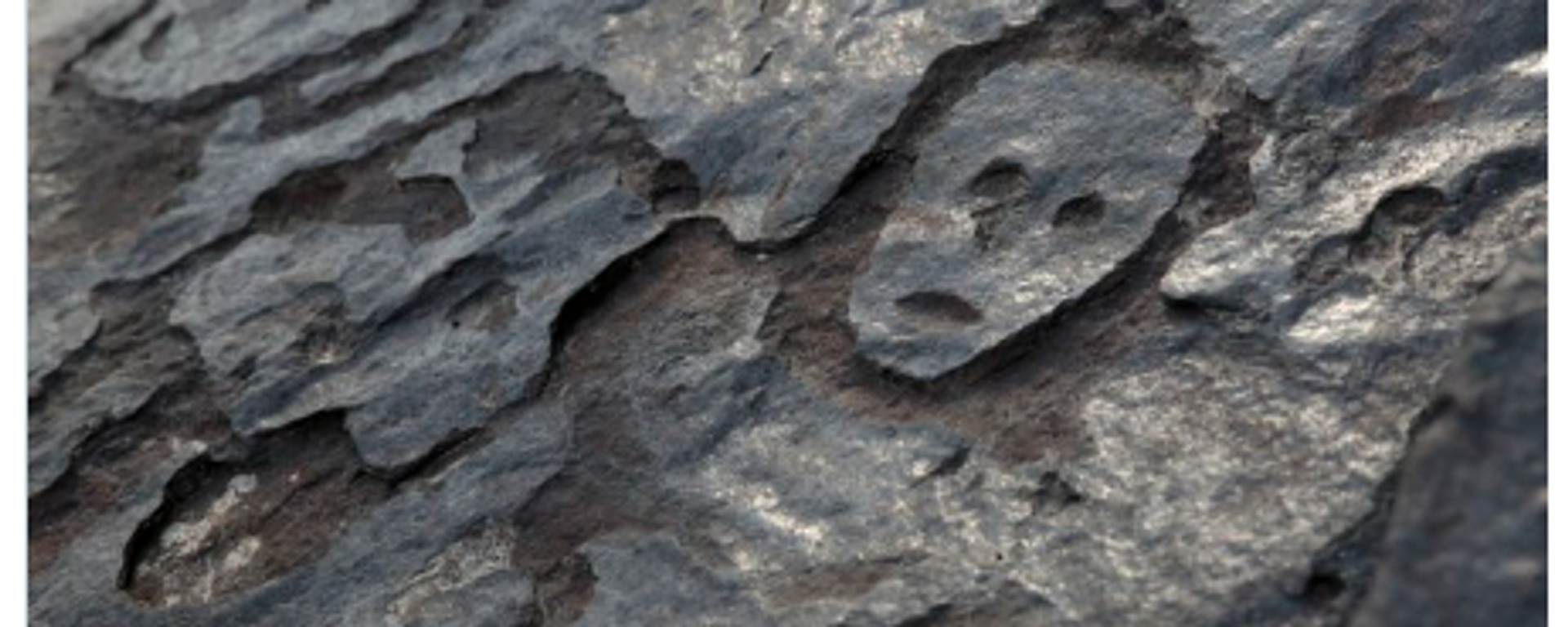https://sputniknews.in/20231116/argoland-continent-missing-for-155-million-years-found-near-australia-5427976.html
'Argoland' Continent Missing for 155 Million Years Found Near Australia
'Argoland' Continent Missing for 155 Million Years Found Near Australia
Sputnik India
Geologists from Utrecht University in Netherlands have discovered 'Argoland', a continent missing for 155 million years old, which broke off from Australia and drifted towards Southeast Asia.
2023-11-16T15:30+0530
2023-11-16T15:30+0530
2023-11-16T15:30+0530
science & tech
india
science & tech
australia
indonesia
myanmar
climate change
the himalayas
https://cdn1.img.sputniknews.in/img/07e7/0b/10/5433240_0:0:484:273_1920x0_80_0_0_a5787f6f8c2aeeeb912f2d568f52fec5.png
In a big scientific finding, scientists have discovered parts of the lost island 'Argoland' which contributed to the formation of various Southeast Asian islands.After seven years of investigation, a team of geologists led by Eldert Advokaat and Douwe van Hinsbergen discovered 3,100-mile-long parts of the Argoland continent that were found beneath the jungles of Indonesia and Myanmar.Experts shared a map, including the current location of Argoland, revealing that the fragments have drifted mostly toward the eastern side of Indonesia, with some migrating towards Myanmar.The research findings, published in Gondwana Research journal, revealed that Argoland was once part of the ancient supercontinent Gondwana which was a part of a 155 million-year-old landmass that was stretched out as wide as the United States.Approximately 215 million years in the past, a cataclysmic event occurred, leading to an intensified fragmentation of the continent, causing it to break into smaller fragments.In their quest for the lost continent, researchers turned to the Argo Abyssal Plain, a deep ocean basin off Western Australia, where they meticulously analyzed geological data to unveil crucial clues.They compared Argoland with another ancient continent, Greater Adria, that was rediscovered in 2019 beneath Southern Europe and is said to have broken off from North Africa 240 million years ago.Like Adria, Argoland broke off into multiple pieces, obstructing the view of the continent's journey.The breakthrough came when Advokaat and his team identified crucial clues in the geological systems of the Himalayas and the Philippines.The researchers revealed that the fragments of Argoland, which was separated by an ocean basin, formed an archipelago rather than a unified landmass.Not only do these findings offer valuable insights into the evolution of our planet, but they also illuminate the formation of our present-day biodiversity, climate, and ecosystems, experts signed off.
https://sputniknews.in/20231025/2000-year-old-stone-carvings-of-faces-discovered-in-dried-up-amazon-river-5064466.html
india
australia
indonesia
myanmar
the himalayas
Sputnik India
feedback.hindi@sputniknews.com
+74956456601
MIA „Rossiya Segodnya“
2023
Sangeeta Yadav
https://cdn1.img.sputniknews.in/img/07e6/0c/0f/110602_0:0:641:640_100x100_80_0_0_c298016a79eb02ef8caa9d1f688c12a5.jpg
Sangeeta Yadav
https://cdn1.img.sputniknews.in/img/07e6/0c/0f/110602_0:0:641:640_100x100_80_0_0_c298016a79eb02ef8caa9d1f688c12a5.jpg
News
en_IN
Sputnik India
feedback.hindi@sputniknews.com
+74956456601
MIA „Rossiya Segodnya“
Sputnik India
feedback.hindi@sputniknews.com
+74956456601
MIA „Rossiya Segodnya“
Sangeeta Yadav
https://cdn1.img.sputniknews.in/img/07e6/0c/0f/110602_0:0:641:640_100x100_80_0_0_c298016a79eb02ef8caa9d1f688c12a5.jpg
geologists, utrecht university in netherlands, discovered, argoland, lost continent, australia, southeast asia, scientific finding, lost island, formation of southeast asian islands, investigation, eldert advokaat, douwe van hinsbergen, jungles of indonesia, myanmar, map, current location of argoland, research findings, published in gondwana research journal, ancient supercontinent gondwana, united states, cataclysmic event, fragmentation of the continent, argo abyssal plain, a deep ocean basin, western australia, geological data, ancient continent, greater adria, southern europe, north africa, advokaat, geological systems, himalayas, philippines, archipelago, landmass, evolution of our planet, biodiversity, climate, ecosystems,
geologists, utrecht university in netherlands, discovered, argoland, lost continent, australia, southeast asia, scientific finding, lost island, formation of southeast asian islands, investigation, eldert advokaat, douwe van hinsbergen, jungles of indonesia, myanmar, map, current location of argoland, research findings, published in gondwana research journal, ancient supercontinent gondwana, united states, cataclysmic event, fragmentation of the continent, argo abyssal plain, a deep ocean basin, western australia, geological data, ancient continent, greater adria, southern europe, north africa, advokaat, geological systems, himalayas, philippines, archipelago, landmass, evolution of our planet, biodiversity, climate, ecosystems,
'Argoland' Continent Missing for 155 Million Years Found Near Australia
Geologists from Utrecht University in the Netherlands have discovered 'Argoland', which broke off from Australia and drifted towards Southeast Asia.
In a big scientific finding, scientists have discovered parts of the lost island 'Argoland' which contributed to the formation of various Southeast Asian islands.
After seven years of investigation, a team of geologists led by Eldert Advokaat and Douwe van Hinsbergen discovered 3,100-mile-long parts of the Argoland continent that were found beneath the jungles of Indonesia and Myanmar.
Experts shared a map, including the current location of Argoland, revealing that the fragments have drifted mostly toward the eastern side of Indonesia, with some migrating towards Myanmar.
The research findings, published in Gondwana Research journal, revealed that Argoland was once part of the ancient supercontinent Gondwana which was a part of a 155 million-year-old landmass that was stretched out as wide as the United States.
Approximately 215 million years in the past, a
cataclysmic event occurred, leading to an intensified fragmentation of the continent, causing it to break into smaller fragments.
In their quest for the lost continent, researchers turned to the Argo Abyssal Plain, a deep ocean basin off Western Australia, where they meticulously analyzed geological data to unveil crucial clues.
They compared Argoland with another
ancient continent, Greater Adria, that was rediscovered in 2019 beneath
Southern Europe and is said to have broken off from
North Africa 240 million years ago.
Like Adria, Argoland broke off into multiple pieces, obstructing the view of the continent's journey.
The breakthrough came when Advokaat and his team identified crucial clues in the geological systems of the Himalayas and the Philippines.
The researchers revealed that the fragments of Argoland, which was separated by an ocean basin, formed an archipelago rather than a unified landmass.
Not only do these findings offer valuable insights into the evolution of our planet, but they also illuminate the formation of our present-day biodiversity, climate, and ecosystems, experts signed off.



